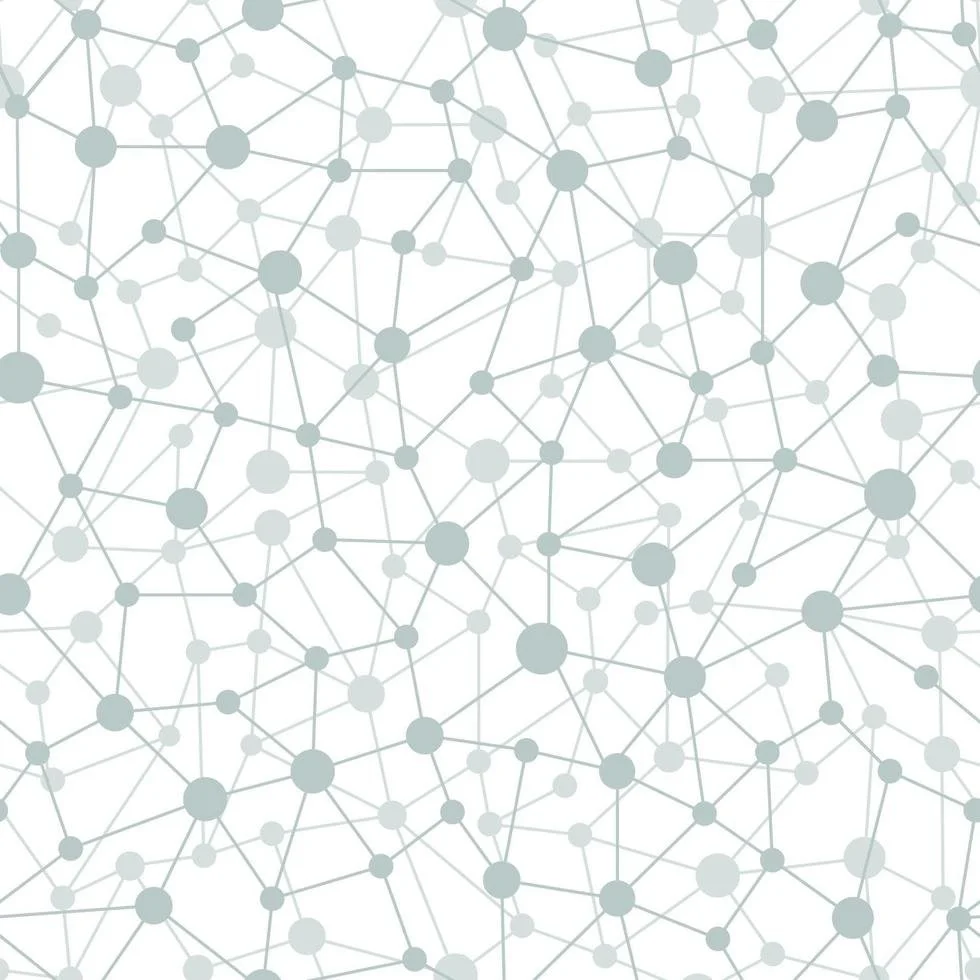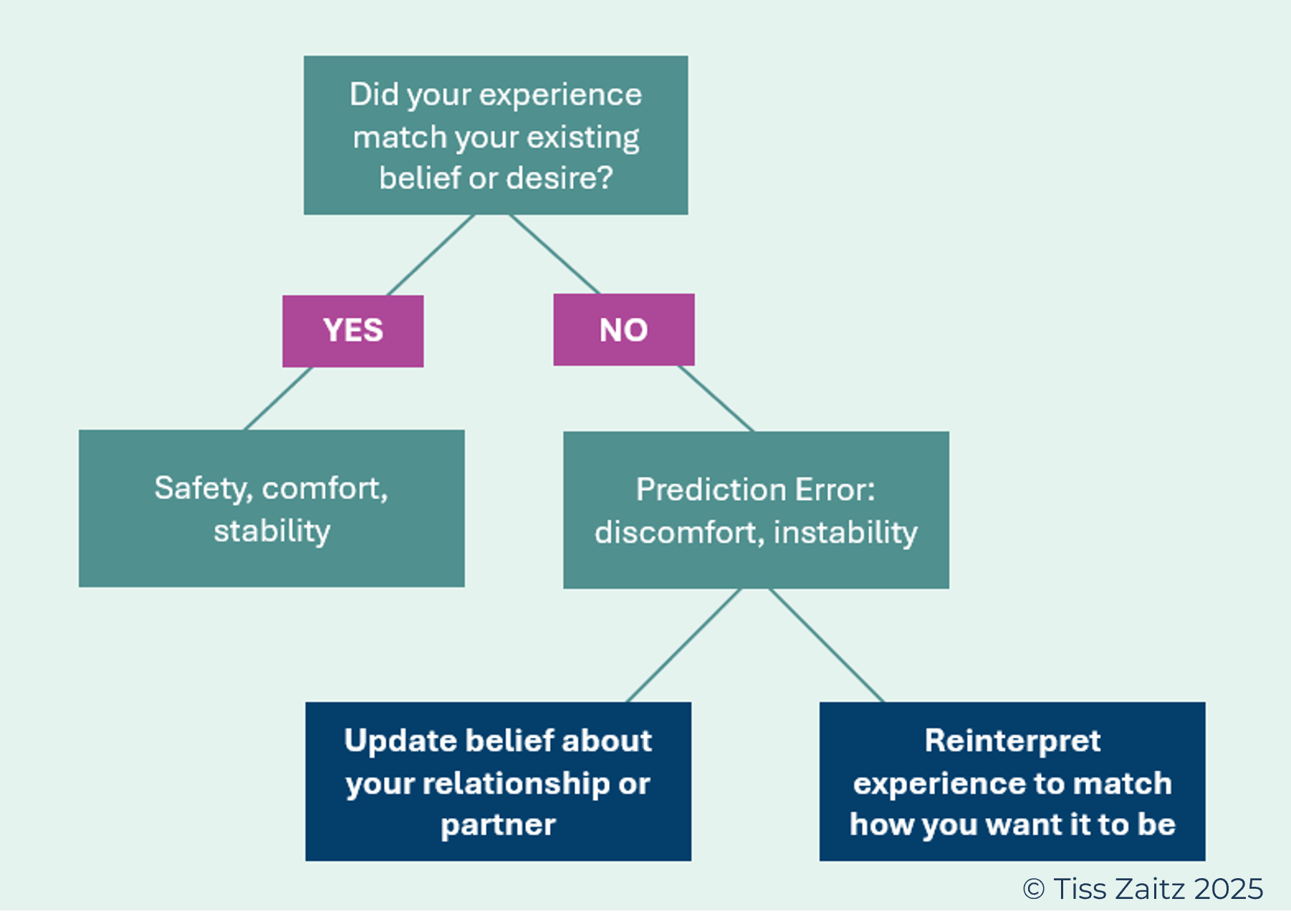
Predictive Processing

Your brain is always making predictions, and it wants to be right.
How many times do you flip the light switch even when you know the power is out? You brain expects the switch to turn on the lights, so it automatically makes you reach over and flip the switch every time you walk by it.
We don’t walk through the world taking it in like a camera. We walk through the world with a model in our heads of what we expect to see, feel, and experience. Then our brain uses sensory input to confirm or correct that model. This is called predictive processing.
When our brain makes a prediction that is correct, we feel comfortable, safe, stable, confident.
But when reality doesn’t match our prediction, we feel uncomfortable, nervous, scared. This is called a predictive error, and our nervous system is not a fan.
The more significant the situation, the louder our nervous system will be. When this happens, we change the model (update what we believe). Or we can opt to change our external world or how we interpret the experience instead of our belief. This flexibility helps us adapt to the specific circumstances.
Imagine that your coffee mug always sits to the left of your keyboard. One day you reach for it and it’s not there—its been moved to the right side. You can change your belief by accepting that the mug now sits to the right, or you can change your external world by moving the mug back to the left.
*NOTE: This is the foundation for love-bombing. The partner will love-bomb you in order to build very strong, very positive beliefs about them in your mind. This will make it harder to leave them when the abuse starts.
Sometimes, that flexibility is helpful. It keeps us from overreacting or getting derailed. But other times, it keeps you stuck.
You organize your belief systems into two categories: external and internal
You build external belief systems—about your relationships, other people, and how the world works. These involve your assumptions about others, relationships, safety, and how things should be.
If your brain is more committed to protecting what it believes about the world than the actual reality of it, you might:
Rationalize red flags instead of seeing them for what they are
Stay in a relationship that isn’t working, rather than admit that what we thought was love might not be
Tell yourself your partner didn’t mean it, they had a hard day, etc.
Convince yourself a relationship is strong/stable because it’s what you expected or wanted it to be
Ignore inconsistencies in someone’s behavior because they don’t fit your belief about who they are
You also build internal belief systems about yourself—who you are, what you deserve, who you are supposed to be. These involve how you see your own worth, blame, emotions, or reliability.
If your brain is hell bent on protecting what it believes about yourself than what is really true, you might:
Blame ourselves when something doesn’t work instead of questioning the relationship or our partner
Downplay what we feel because it “doesn’t make sense,” to avoid having to face uncomfortable truths
Tell yourself you're imagining things, overthinking, or being too critical
Think it’s your fault when someone hurts you or mistreats you
Believe your discomfort is the problem rather than a signal
The more invested you are in the relationship, the more likely you are to alter your perception of things than to face the pain of what’s really happening.
That’s denial. It’s how your brain keeps you safe (according to your nervous system’s blueprint.) But when your beliefs shape your reality when it should be the other way around, things can get messy.

